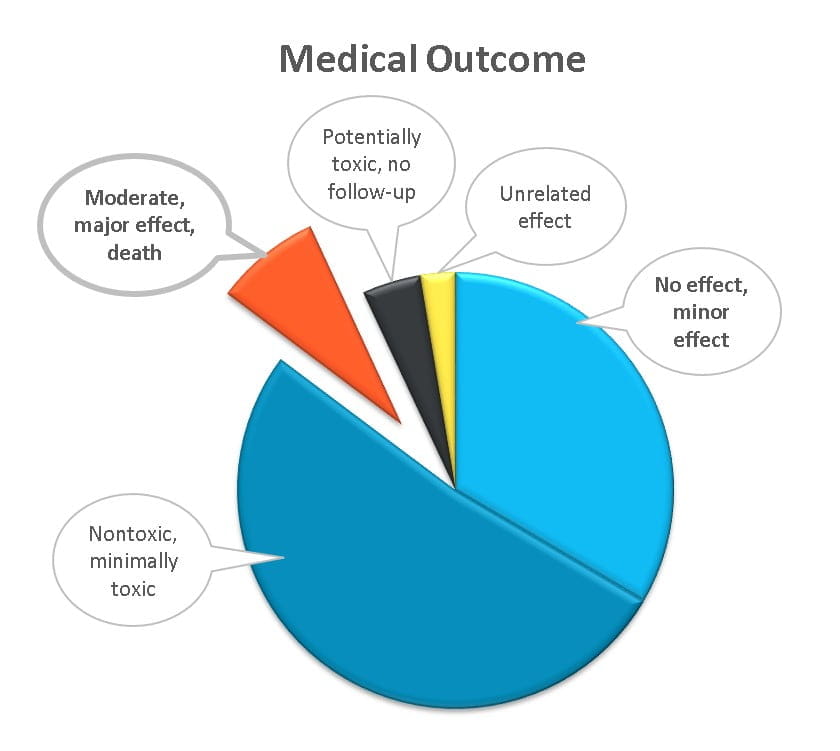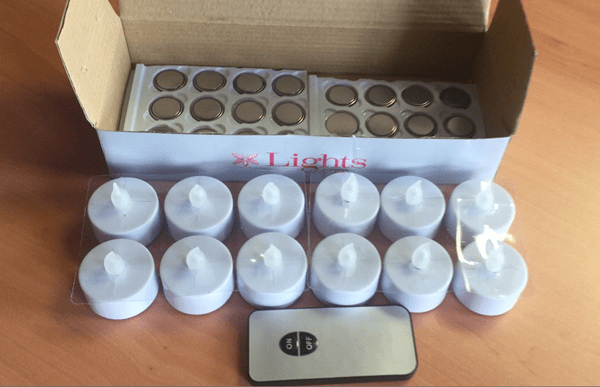Press Release, Flameless Tea Candle Dangers
| NATIONAL CAPITAL POISON CENTER NEWS RELEASE FOR IMMEDIATE RELEASE: December 29, 2016 |
||
| Test shopping reveals flameless or tea candles that pose extreme danger for children Washington, DC – Flameless candles, also known as tea candles, accounted for 14% of swallowed lithium coin cells (button batteries) over the past 2 years, according to data from the 24-hour National Battery Ingestion Hotline. Swallowed 20 mm diameter batteries have a higher voltage and cause devastating injury if they get stuck in the esophagus of a young child. In just 2 hours, that battery may burn through the child's esophagus and the child may require feeding and breathing tubes for months or years, multiple surgeries, and may even die. Just before the holidays the National Capital Poison Center shopped for flameless candles, to try to determine why so many batteries from these candles were causing disastrous outcomes. One product purchased was so dangerous, the Center informed the U.S. Consumer Product Safety Commission and the distributor right away, urging immediate action to make the product safer. Toby Litovitz, MD and Executive & Medical Director of the National Capital Poison Center: "In the package we received were 24 loose button batteries, 12 tea lights containing batteries, and a remote control. The batteries were completely loose, with no child-resistant packaging protection. The battery compartment of this flameless candle can also be opened easily by every child. It had no screw closure or secure child-resistant latch. A child could quickly access the candle's 20 millimeter lithium button battery."
Litovitz: "The holidays pose an increased risk for button battery incidents, especially for small children. Light-up decorations; singing, talking or flashing cards, books and attire; flameless candles; new household electronics and their remote controls; games and toys; bathroom scales and key fobs are examples of the many products that contain 20 mm lithium button batteries. These larger lithium button batteries are especially likely to get stuck in a child's throat and burn through the esophagus in as little as two hours." A few tips:
The National Capital Poison Center, founded in 1980, is an independent, private, not-for-profit organization and an accredited poison center. Its nurse and pharmacist Certified Specialists in Poison Information provide 24/7 telephone guidance for poison emergencies, free of charge. It also provides online guidance for poison emergencies through the webPOISONCONTROL® tool, health professional education in toxicology, and poison prevention education. Service focuses on the metro DC area with a national scope for projects such as webPOISONCONTROL, the National Battery Ingestion Hotline (202-625-3333), [battery hotline number is now 800-498-8666], and The Poison Post®.
The mission of National Capital Poison Center is to prevent poisonings, save lives, and limit injury from poisoning. In addition to saving lives, Poison Control decreases health care costs for poisoning cases. In 2015, the 55 U.S. poison control centers provided telephone guidance for nearly 2.2 million human poison exposures.
For more information: |
||
Press Box
Data Analysis Published in AJEM Shows Power of Automated Poison Control Services
Poison Control Services Preserve Critical COVID-19 Healthcare Resources
webPOISONCONTROL® Provides Expert Help Online for Many More Poison Exposures
Digital Triage Tool webPOISONCONTROL® Launches Comprehensive Upgrade
Take Poison Prevention Seriously
Flameless Candles or Tea Lights
First Online App for Poison Emergencies
National Poison Prevention Week
Poisoned? Get Expert Help Online
Don’t guess what you should do. Get accurate answers prepared by poison control experts. This tool will guide you. It’s free. It’s confidential.
Support Us
Help us save lives! Donate now so we can continue to provide 24/7 expert help for poison emergencies. Your donation to our 501(c)(3) charitable organization will keep the phone lines open and the app online.
Learn the Poison Prevention Jingles
Learn the Poison Help jingle in English or Spanish. Use these jingles to teach the Poison Control number: 1-800-222-1222. Available for download.
Poison Statistics


